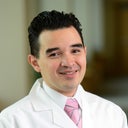Posted underBreast Implants q&a
Intellectual601851Nov 5, 2023
Answers (6)
From board-certified doctors and trusted medical professionals
Dr. Brian K. Reedy, MD

BM
Dr. Brian K. Reedy, MD
Board Certified Plastic Surgeon
Answer
Dr. John L. Burns Jr., MD

JM
Dr. John L. Burns Jr., MD
Board Certified Plastic Surgeon
Answer
Dr. Ted Eisenberg, DO, FACOS, FAACS

TF
Dr. Ted Eisenberg, DO, FACOS, FAACS
Board Certified Plastic Surgeon
Answer
Dr. Camille Cash, MD
CM
Dr. Camille Cash, MD
Board Certified Plastic Surgeon
Answer
Dr. Connie Hiers, MD, FACS
CF
Dr. Connie Hiers, MD, FACS
Board Certified Plastic Surgeon
Answer
Dr. Mats Hagstrom, MD (license on probation)
MP
Dr. Mats Hagstrom, MD (license on probation)
Board Certified Plastic Surgeon
Answer
More Breast Implants Questions
See all Breast Implants Q&A
WE SEND PRETTY
EMAILS
What’s trending? Who’s turning heads? Which TikTok myths need busting? We’ve got you. No fluff, no gatekeeping—just real talk. Get our free, unfiltered newsletter.



